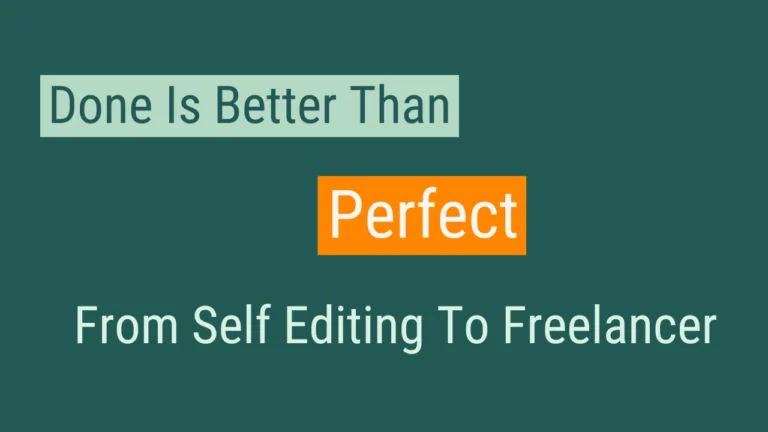
As a freelance podcast editor or manager, building positive relationships with clients is key to your success. It’s important to be polite, accommodating, and go above and beyond to keep your clients happy. But there is a downside to being too nice – it can cause some serious problems.
For example, if you’re always trying to please your clients, they may take advantage of your willingness to do whatever it takes to make them happy. They may ask for endless revisions, expect you to work outside of your agreed-upon scope, or even try to negotiate lower rates. This can lead to frustration, burnout, and lost income.
Another issue with being too nice is that it can make it tough to set boundaries. If you’re always saying “yes” to client requests, it can be hard to say “no” when you need to. This could mean you end up taking on too much work or working on projects that aren’t a good fit for you.
And if you’re constantly trying to be the nice guy or girl, you may find it hard to stand up for yourself or negotiate higher rates. This can lead to lower pay and less recognition for your hard work.
Plus, let’s not forget the potential for late files if you’re always prioritizing being nice over being professional. Deadlines matter!
To avoid these issues, it’s important to find a balance between being accommodating and assertive. Don’t be afraid to communicate your boundaries and expectations to your clients. And if you need to say “no” to a request or negotiate higher rates, do it! You can still be a kind and professional freelancer while advocating for yourself.
Remember, being nice is great, but not at the expense of your well-being or your business. Find that balance and you’ll be well on your way to freelance success!
Now, let’s explore these issues in more depth and look at some strategies for finding that balance.
The Downsides of Being Too Nice
When you’re always trying to be accommodating and please your clients, it can lead to some serious issues. Let’s take a closer look at some of the most common downsides of being too nice.
Clients may take advantage of your willingness to please.
One of the biggest issues with being too nice is that clients may start taking advantage of your willingness to do whatever it takes to make them happy. They may start asking for more revisions than you had originally agreed upon, or they may try to negotiate lower rates with you.
While it’s important to be accommodating to your clients, it’s also important to set clear boundaries and expectations. Let your clients know what you are willing to do and what you are not willing to do. Be upfront about your rates and your policies regarding revisions and scope of work.
If you do run into a situation where a client is taking advantage of your kindness, it’s important to address it as soon as possible. Don’t be afraid to have an honest conversation with your client and let them know that their requests are outside of the scope of the project or that additional revisions will require an additional fee. By setting these boundaries, you can protect your time and your income while still maintaining a positive relationship with your client.
It can be tough to set boundaries.
Another issue with being too nice is that it can make it tough to set boundaries. If you’re always saying “yes” to client requests, it can be hard to say “no” when you need to. This could mean you end up taking on too much work or working on projects that aren’t a good fit for you.
To avoid this issue, it’s important to have a clear understanding of your own limits and priorities. Know how much work you can handle, what types of projects you enjoy working on, and what your rates are. Communicate this information to your clients, and be upfront about your availability and limitations.
It’s also important to have a system in place for managing your workload. Use a project management tool or calendar to keep track of deadlines and prioritize your tasks. And if a client asks you to take on additional work, consider whether it aligns with your goals and priorities before saying yes.
Remember, saying “no” is not a negative thing. It’s simply a way to protect your own interests and ensure that you’re doing your best work for your clients.
It can impact your ability to advocate for yourself and your work.
If you’re always trying to be nice, you may find it hard to stand up for yourself or negotiate higher rates. This can lead to lower pay and less recognition for your hard work.
To avoid this issue, it’s important to recognize your own value and advocate for yourself and your work. Know your worth and don’t be afraid to negotiate higher rates or assert yourself professionally.
It can be helpful to practice having difficult conversations with friends or colleagues before having them with clients. You can also do research on industry rates and market yourself as an expert in your field.
Remember, you were hired for your podcast editing skills and expertise, and it’s important to be compensated fairly for your work. By advocating for yourself, you can ensure that your clients value your contributions and you are paid what you deserve.
Prioritizing being nice over being professional can lead to missed deadlines and delays.
Finally, if you’re always prioritizing being nice over being professional, it can lead to missed deadlines or delays in projects. This can impact your reputation as a podcast editor or manager and make it more difficult to secure future work.
To avoid this issue, it’s important to prioritize professionalism in all of your interactions with clients. Be clear about your deadlines and communicate any potential delays as soon as possible. Use project management tools to keep track of your tasks and deadlines, and make sure you are allocating enough time to each project.
It’s also important to have open and honest communication with your clients. If you’re running into issues that may impact the project timeline, let your clients know as soon as possible. By being transparent and professional, you can maintain positive relationships with your clients while also delivering high-quality work.
Finding the Balance
So how can you find the balance between being accommodating and assertive as a podcast service provider? Here are some strategies to consider:
Set clear boundaries and expectations.
From the outset of a project, be clear about your boundaries and expectations. Communicate your rates, policies regarding revisions and scope of work, and availability. This can help you avoid misunderstandings and set the stage for a positive working relationship.
Prioritize professionalism.
While being nice is important, it’s also important to prioritize professionalism in all of your interactions with clients. Be clear about your deadlines and communicate any potential delays. Use project management tools to keep track of your tasks and prioritize your work. And always deliver high-quality work that meets or exceeds your clients’ expectations.
Know your value and advocate for yourself.
Recognize your own value as a freelancer and advocate for yourself and your work. Negotiate higher rates, assert yourself professionally, and communicate your expertise to your clients. By doing so, you can ensure that your clients value your contributions and you are compensated fairly for your work.
Practice saying “no.”
Saying “no” is an important part of setting boundaries and protecting your time and energy as a freelancer. Practice having difficult conversations with friends or colleagues before having them with clients. By practicing saying “no,” you can become more comfortable with asserting your boundaries and communicating your limitations to your clients.
Take care of yourself.
It’s important to prioritize self-care as a freelancer. Taking breaks, exercising, and getting enough sleep can all help you maintain a healthy work-life balance and avoid burnout. Remember, you can’t do your best work for your clients if you’re not taking care of yourself first.
To wrap things up, being too nice can pose some serious problems for freelancers. From clients taking advantage of your willingness to please to difficulty setting boundaries and advocating for yourself, being overly accommodating can impact your success as a freelancer.
But by finding the balance between being accommodating and assertive, you can maintain positive relationships with clients while also protecting your own interests. Set clear boundaries and expectations, prioritize professionalism, know your value and advocate for yourself, practice saying “no,” and take care of yourself.
Remember, being nice is great, but not at the expense of your well-being or your business. By finding that balance, you can achieve success as a freelancer while also maintaining positive relationships with your clients.






